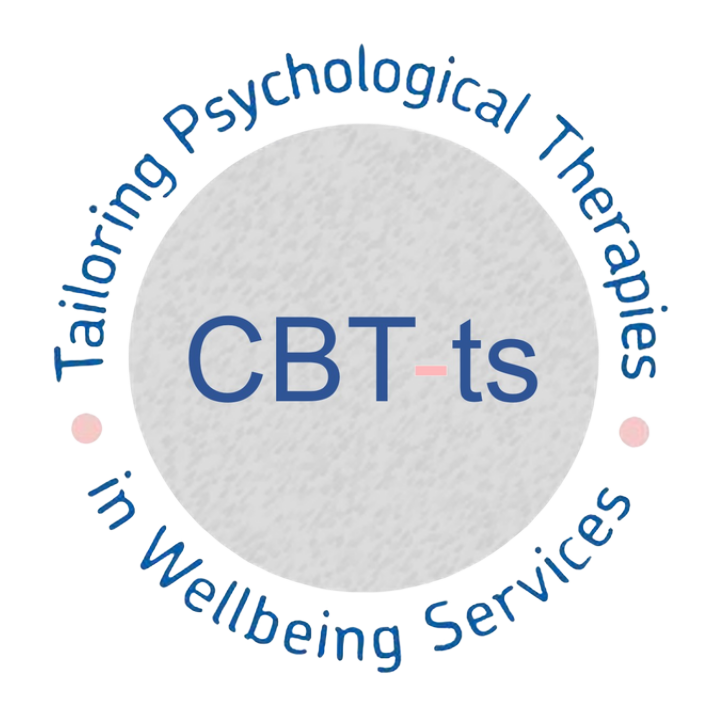TYPPEX
Tailoring evidence-based psychological therapY for People with common mental disorders including Psychotic EXperiences.
About TYPPEX
The TYPPEX programme
The TYPPEX study has developed and is evaluating a training and supervision package for NHS therapists, to help them meet the needs of people with common mental health disorders (anxiety and depression) and Psychotic Experiences (PEs).
Public and Patient Involvement (PPI) has been an integral part of the study, and a Lived Experience Advisory Panel (LEAP) have been involved since inception (facilitated by the McPin Foundation). You can read more about PPI and co-production here.
What is TYPPEX and why is it important?
TYPPEX stands for Tailoring evidence-based psychological therapY for People with common mental disorders including Psychotic EXperiences.
Psychotic experiences (PEs) can be described as perceiving or interpreting situations differently compared to people around you. This may include feelings of suspiciousness, experiencing unusual thoughts and seeing or hearing things that others don’t . PEs are common for those receiving NHS talking therapy for anxiety and depression. If there is an increase in the severity of the anxiety and depression symptoms, the likelihood of experiencing PEs can also increase.
NHS Talking Therapies services do not fully meet the needs of those who have PEs alongside their anxiety and depression. The TYPPEX study evaluates a new training and supervision package for therapists, CBT-Ts (Cognitive Behavioural Therapy – Tailored for Severity). By giving therapists the knowledge about PEs and skills to tailor CBT to address the PEs alongside the anxiety and depression. the TYPPEX study looks to improve understanding of PEs for therapists and patients with anxiety and depression, as well as seeking to provide better treatment outcomes for this group.
Information for researchers and practitioners
The NIHR (National Institute for Health and Care Research) funded TYPPEX programme focuses on a previously unidentified group of patients receiving treatment in NHS Talking Therapies services for common mental health disorders (CMDs). Theoretically predicted and endorsed by our lived-experience advisory panel, researchers discovered that almost a third of these patients are experiencing psychotic experiences (PEs), such as hallucinations and suspiciousness). PEs are more prevalent as severity of depression and anxiety increases and PEs predict poor outcomes in services. Nationally, these services treat more than a million people a year.
With strong input from people with lived experience (co-ordinated by the McPin Foundation), the TYPPEX programme developed a specialist training and supervision package for therapists to help them tailor a new blend of existing psychological therapies to address this presentation that previously hid in plain sight. The study is evaluating a multi-centre, stepped-wedge RCT (Randomised Control Trial). This is a disruptive, trans-diagnostic programme that may important therapeutic impacts, but also could lead to a reappraisal of psychotic experiences in clinical settings. We hope PEs which were once assumed to be primarily indicators for other mental disorders such as schizophrenia, can be further destigmatised and normalised for those with CMD.
We Want to Make the
Difference.
For people experiencing a common mental health disorder as well as psychotic experiences, neither NHS Talking services nor early intervention services fully meet their needs. One of our service-user advisors said:
“It was like being stranded in no-man’s-land…there was simply no service that was right for me”.
The TYPPEX study will develop and evaluate a form of talking therapy that will meet the needs of people with a common mental health disorder and psychotic experiences.
How it Started...
Read more about how it all started in 2008. From our trailblazing former study, systemic review on psychological interventions for people with psychotic experiences, to our feasibility study and respective process evaluation and finally, the beginning of the Randomised Control Trial (RCT).

To our Collaborators
The TYPPEX team gratefully acknowledge the generous support from our sponsors and collaborators.
“We want services to help people with the problems they have, not the illnesses they may, but probably won’t develop. We aim to develop precision psychotherapy for people with a particular combination of problems that just hasn’t been properly recognised in the past.”
“There are a range of treatments available for psychotic experiences, but no clear pathway to bring them into services where most people are already seeking help for other conditions. One patient described to me that they felt there was no right service to meet all their needs- they felt they were in no-man’s land.”
From The Blog
Read more about our dissemination events and the backstage while working in clinical research.
Psychotic experiences: everyone has them and so do you!
On Saturday 16th March, the TYPPEX team attended the Cambridge Festival CAST day at Cambridge Academy for Science and...
International Clinical Trials Day 2023
Did you know that research runs on biscuits? For International Clinical Trials Day 2023, the TYPPEX team made a video...
TYPPEX x MED-I-CAKE@ Norwich Medical School
After the success of Norwich Science Festival, we decided to replicate our stall (admittedly with less sweets) at the...
Read Our Newsletters
October 2023
Trial update sent to our therapists. Read it here!
September 2023
Trial update sent to our collaborators. Read it here!
May 2023
Trial update sent to our therapists. Read it here!
August 2019
Your content goes here. Edit or remove this text inline or in the module Content settings. You can also style every aspect of this content in the module Design settings and even apply custom CSS to this text in the module Advanced settings. Read it here!




